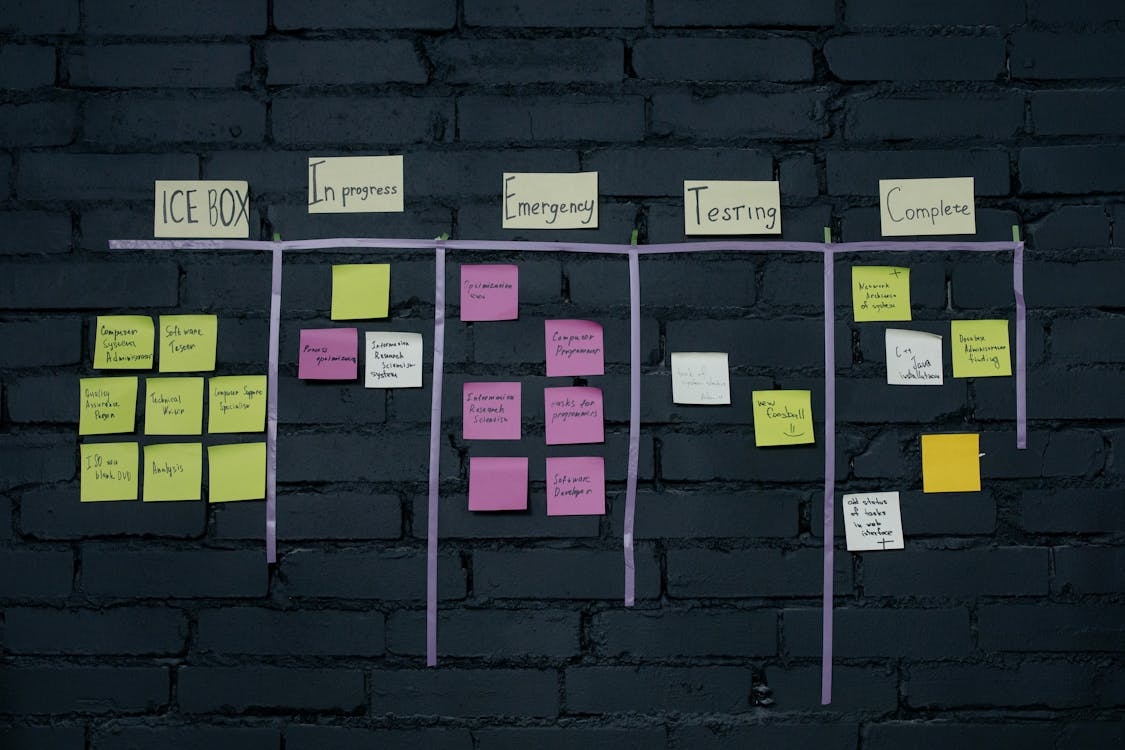In the rapidly evolving world of software development and database management, agility is not just a buzzword; it’s a strategic imperative. Oracle Database environments are robust, powerful, and capable of handling significant data loads with complex structures. However, integrating Agile project management techniques into such environments can be incredibly beneficial, leading to more responsive, flexible, and timely database solutions. Leveraging Oracle DBA services and database support services within an Agile framework ensures that databases are not just robust but also adaptable to the changing needs of businesses.

Agile Project Management for Database Management Systems
In the dynamic field of software development, Agile Project Management (APM) has emerged as the de facto approach for ensuring smooth, efficient, and responsive workflows. A key area where Agile’s principles prove invaluable is database management systems (DBMS).
Understanding and effectively leveraging the principles of APM can significantly impact how efficiently a database is designed, developed, and managed over its lifecycle. Agile encourages iterative development, which, in the context of DBMS, means improving the system progressively over time. This approach allows teams to respond swiftly to changes, whether these arise due to evolving business needs, changes in end-user requirements, or updates in technology standards.
Moreover, Agile promotes greater transparency between developers, stakeholders, and end-users. Regular communication, a foundation of Agile, ensures that functional requirements and expectations are mapped, potential issues or misunderstandings can be addressed promptly, and the risk of significant discrepancies or complex problems in advanced stages is reduced.
Embracing Change with Oracle DBA Services
An Agile Oracle DBA service is designed to manage and optimize Oracle database environments, emphasizing short, incremental improvements. The DBA’s role includes adapting to changing requirements, which is a fundamental principle of Agile methodologies, even late in the project lifecycle.
Flexible Planning
Agile project management encourages flexible planning. Oracle DBAs, when working within Agile parameters, use iterative scheduling. This translates to frequent reassessment and adaptation of plans that align database design, performance, and security with the current needs of the project at hand. The DBA can refine the database’s architecture with each iteration, ensuring optimal performance and alignment with user requirements.
Incremental Deployment
Instead of one large deployment, Agile favors releasing small, incremental changes. This means changes can be applied quickly for Oracle environments, and potential issues can be identified and resolved earlier. DBAs use Oracle’s Edition-Based Redefinition (EBR) or similar features to deploy changes without interrupting database services, ensuring higher availability and less downtime.
Collaborative Environment
In an Agile setup, Oracle DBA services are not provided in isolation. DBAs work closely with developers, business analysts, and other project stakeholders. This fosters a more profound, cross-functional understanding of the project’s objectives, resulting in a database design more attuned to the application’s needs.
Database Support Services: Agile’s Ally
Comprehensive database support services are pivotal in managing and optimizing Oracle database environments within an Agile framework. Here’s how they contribute to this dynamic approach.

Continuous Improvement
By continuously monitoring the database performance and applying incremental improvements, database support teams ensure constant advancement in the system’s efficiency and reliability, aligning with Agile’s continual enhancement ethos.
Cross-Functional Engagement
Database support technicians often work as part of wider Agile teams. This close integration ensures that database changes are not made in a vacuum but take into consideration the impact on and input from the rest of the application stack, delivering a well-rounded technical solution.
Proactive Problem Resolution
The Agile methodology’s emphasis on rapid feedback and assessment syncs perfectly with proactive support services, which aim to anticipate and solve problems before they escalate. This allows for a smoother development cycle and more stable Oracle database environments.
Agile Techniques Specific to Oracle Environments
While the aforementioned services set the stage for Agile practices, some Oracle-specific Agile techniques can be implemented in various project environments.
Scrum and Kanban for Database Management
Oracle DBA tasks can be visualized and prioritized using Scrum and Kanban boards. Sprints can be planned to focus on a set of database tasks, from performance tuning to schema updates, while integrating database support services to ensure a transparent workflow and manageable work packages.
Oracle’s Agile Data Modeler
The Oracle SQL Developer Data Modeler allows DBAs and developers to create a visual representation of the database schemas. This tool can be particularly agile-friendly, supporting quick iterations, ongoing revisions, and collaborative discussions around the data model.
Test-driven Database Development (TDDD)
Adopting a Test-driven development (TDD) approach for database work ensures a corresponding test is created before any change is made. This aligns with the Agile methodology, enforcing a cycle of continuous integration and validation, enhancing code quality, and reducing bugs.
Automated Database Refactoring
Automation is key in Agile. Automated tools for Oracle database refactoring help manage changes and migrations efficiently. These tools keep track of database changes, allow for rollback if needed, and maintain the integrity of the database throughout the development process.
Conclusion
Integrating Agile project management techniques into Oracle database environments offers a promising pathway towards aligning robust database capabilities with the dynamic needs of modern software development. Oracle DBA services and database support functions are crucial in this integration, bridging the gap between traditional database administration and contemporary, iterative project management approaches.
As businesses seek ways to become more responsive to market changes while maintaining stringent data integrity and performance standards, combining Oracle’s power with Agile’s adaptability represents a winning formula. The result is a database environment that meets the current demands and is poised to adapt to future challenges and opportunities.

